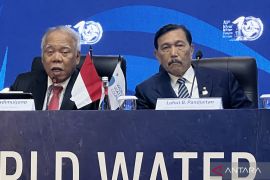The fact was that the REDD program had an opposite impact, to harm the economy of the countries implementing it, the chairman of the Washington-based NGO said here on Thursday.
In addition, the call by environmental NGOs for the expansion of conservation areas also had the potential to bring about a negative impact to biodiversity and local people`s welfare, he said.
Environment-related international funding for Indonesia would only impede the expansion of strategic industries which would in the end slow down economic growth, Oxley said at a function marking the first year of the World Growth REDD Indonesia Stakeholder Forum.
Comprehensive halt to the issuance of permits to plantation, mining and forestry companies would harm the Indonesian economy. The move would likely eliminate 3.5 million new jobs, hold the growth of the relevant industries which contribute 15 percent to the national economy, slash foreign exchange earnings, and impede sustainable forest conservation efforts and poverty eradication programs, he said.
According to him, environment-related funding in Indonesia would eventually impede the national economic growth.
He said REDD institutional programs were very fundamental. REDD scheme was drawn up on assumption that deforestation was the major contributor of greenhouse gas emissions.
"But the results of a study made by the World Bank and the Norwegian government show the contribution of deforestation to greenhouse gas emissions is only a half or even lower," he said.
He noted some shortcomings of REDD programs, including the lack of good coordination for the programs and their funding, the absence of clear accountability and failure to meet the interests of recipient countries.
He said international NGOs such as the World Wildlife Fund (WWF) and Greenpeace had so far called for the expansion of conservation areas in Indonesia as part of efforts to reduce greenhouse gas emissions.
But the call would only impede small farmers in growing food sources which would eventually affect their capability to become self-reliant and make them susceptible to surge in food prices. (*)
Editor: Kunto Wibisono
Copyright © ANTARA 2011










